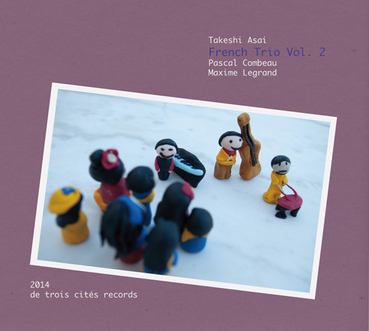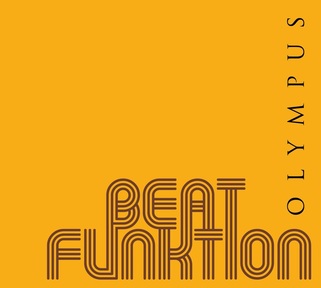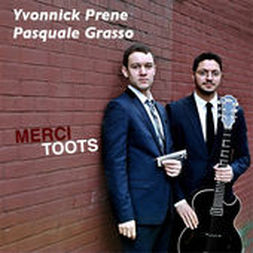
The album was composed mostly by Asai with one song each by Combeau (“Little Black Pudding”) and Legrand (“Libre Arbitre”).
The album opens with “653.” The piano is delicate but straightforward. The rhythm section is solid and even. It carries an autumnal feel and a bit of a contemplative quality. With all of that, however, there are hints of playfulness, as well. Pascal Combeau’s bass solo is coherent with the piano and, together, they are beautifully meticulous.
One of the more pleasing aspects of the album is the duration of the tracks. They allow time and room for exploration and evolution. Such is the case with “653.”
“Beginning Again” starts with Legrand’s swing. It provides a sweet springboard for Asai and Coombeau. There is a hinted reworking of a well-known piece involved with Asai and Combeau combining to deconstruct and then piece it back together. Asai’s improvisations are stronger than ever, combining distinction and delicacy.
“Hircam” is a fascinating composition. There is an ascending quality to the melody while it simultaneously expands in range and dynamics.
This is a remarkable piece that allows all three artists wide expression. It is dramatic. It is visionary. Combeau’s bass solo is accentuated by Legrand’s rim-playing who is at a dynamic high here. The ascending becomes a crescendo that is just splendid. The song continues to crescendo as it fades out in a sonic undertow.
“Hier” takes a step back into a more languid repose. The gentle chords and the legato bass lines, supported by Legrand’s brushes, make for an almost nocturnal atmosphere.
Asai’s cascading doublets are enchanting and are mirrored by Legrand’s brush on snare doublets. The song fades into a lullaby. Sweet.
“Little Black Pudding” is Pascal Combeau’s composition. The piece is romantic and light-hearted. The melody is a celebration and the bass solo is a fun romp. The track is a charming work of straight-up Jazz.
“Intro-Little Vexations” follows. You’ve got to love the title. There is a haunting atmosphere in the solo piano introduction. The chord changes are wonderful and the feeling of overcoming or even ignoring those little vexations is enhanced with the swing of the bass and drum.
Combeau and Legrand are a great partnership. This track proves the tight interaction between them. A jolly, fun piece.
“Libre Arbitre” is Maxime Legrand’s compositional contribution. As is true of almost any work written by a drummer, the time is more important than the melody. Such is the case here. It is indeed the rhythm that catches the attention.
The melody, however, is attention-grabbing on its own. The percussiveness of the piano marks the rhythm out well, as the arpeggios allow the drums to roll out the track.
At eleven and a half minutes, “I Remember the Castle” is the longest track on the album and serves as the album’s conclusion. The groove intro gives way to a romanticized remembrance. The melodic lines and the rhythmic lines are beautifully interwoven. The North African feel is delightful in both melody and rhythms.
Takeshi Asai’s French Trio is a wonderful partnership of complimentary talents. The musicianship and the composing are steadfast and sincere. The improvisation is imaginative and precise. There is a mathematical exactitude that does not inhibit the emotion of the music. There is a camaraderie within the trio that also envelops the listener in its embrace.
Takeshi Asai has developed a depth of insight in improvisational talents and skills. As an artist, he displays an emotion that is restrained but profound. As a composer, he reveals the breadth of his intelligence and imagination. As his audience, we are privileged to participate in the revelation of his heart.
Purchase "French Trio, Vol. 2" at cdbaby here: http://www.cdbaby.com/cd/takeshiasai14
Visit Takeshi Asai's website at: http://www.takeshiasai.com/
Like Takeshi Asai on Facebook at:
https://www.facebook.com/pages/Takeshi-Asai-pianist-composer/359734607403665?fref=ts
To follow more great music, go to Kari-On Productions on Facebook at: https://www.facebook.com/karionproductions?fref=ts





 RSS Feed
RSS Feed
